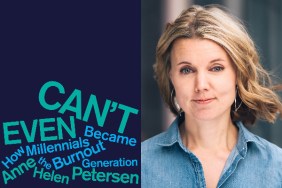It has become a recurring theme in recent years that, when the world starts looking a little bleaker, the Baby Boomers and Generation X will begin to point to millennials as the root cause of many of modern society’s problems. Despite the Millennial generation being forced to find their feet in an era of joblessness, economic instability and recession, critics of Generation Y will often point to their “sense of entitlement” as the reasoning behind their lack of success in getting the West’s gravy train back on the rails, and not the poor hand they were dealt with as they made their fledgling steps into their respective career paths.
‘The Millennial Question’ is a video that has been doing the rounds recently, garnering millions upon millions of views across various platforms, with it being widely shared on Facebook and Twitter. The video features author and motivational speaker Simon Sinek issuing a sardonic, generalised take down of the generation by suggesting that they’re “entitled, narcissistic, self-interested, unfocused, lazy.”
Also: Twitter “Safe Search” Will Let Users See Fewer Mean Tweets
Sinek doesn’t offer evidence of his claims, but rather anecdotal musings he uses to make suggestions about millennials without having to back up his claims with data. “They confound leadership so much that what’s happening is leaders are asking millennials: “What do you want?” and millennials are saying: “We want to work in a place with purpose … we want to make an “impact,” y’know, whatever that means, we want free food and bean bags.” So somebody articulates some kind of purpose, there’s free food and there’s bean bags, and yet for some reason they’re still not happy.”
Watch the video below:
Sinek’s supposed blistering take down of a generation that consists of 83.1 million people in the US alone led to him being interviewed by The Independent this week, in which he expanded upon his criticisms of Generation Y. “According to Sinek, 43, parents of millennial have now realised that their well-intentioned parenting strategies may have backfired”, the feature reads, continuing: “They told us we were special all the time and could have anything we want in life. We got medals for coming in last and if we didn’t get into the best clubs, our parents complained. This meant entering the real world was a shock and our self-images were shattered.”
Predictably, Sinek fails to provide data to back up his claims that the struggles of millennials are down to laziness, entitlement and our apparent bruised egos, presumably because the data that exists undermines his condescending argument. In a study conducted by the advocacy group Young Invincibles titled ‘The Financial Health of Young America,’ millennials earn 20% less than Baby Boomers despite being in possession of a degree, with a median household income of $40,581.
In the UK millennials have been “frozen out” of the housing market according to the Redfern review, as noted by the Financial Times. “The Redfern review published this week identified a series of barriers to first-time buyers in the wake of the financial crisis,” reads the report from FT. “Mortgages became harder to obtain after regulators tightened the rules on affordability and banks restricted the availability of credit; average house prices rose from 2002; and incomes earned by young people fell relative to other groups.” As we reported earlier this week, home buyers in London will need to save £2,300 every month if they want to be able to buy the average priced home in the English capital.

Image Credit: Young Invincibles / Twitter
The “laziness” touted by Sinek is also highly debatable. According to a report from ManpowerGroup (via ATTN), a survey of 19,000 millennials from around the world found that millennials “are working as hard, if not harder, than other generations.” The survey found that 83% of American millennials surveyed worked 40+ hours a week, while 23% worked 50+ hours, with them working an average of 45 hours. US Census data notes that the average American worked just under 40 hours per week from 1970 to 1990.
Sinek attempts to posit his criticisms of millennials as him demonstrating empathy and trying to figure out solutions, but in reality overlooking the copious amounts of economic issues that the generation has been born into is a crucial and egregious oversight. Sinek suggests that the root cause of millennials’ problems is the “sense of impatience” and lack of coping mechanisms they suffer from, rather than the reality of them struggling to find their place in a world with fewer job prospects, and in which they can’t even afford to buy a home when they’re done racking up thousands in debt to get an education that doesn’t even come close to guaranteeing success. Sinek’s “motivational speech” may well be popular but, just like his view on millennials, it’s lazy and demonstrates minimal effort in addressing the real issues faced by Generation Y.








